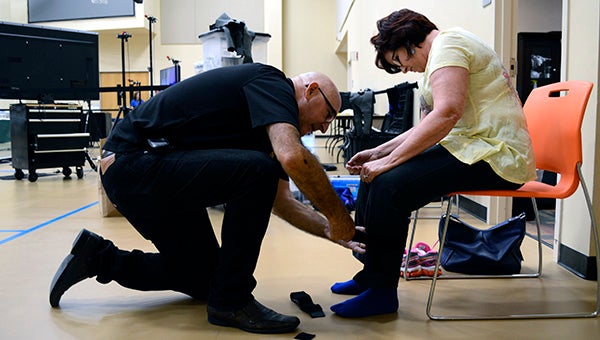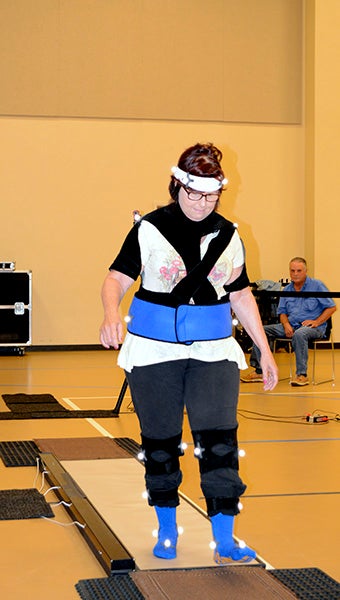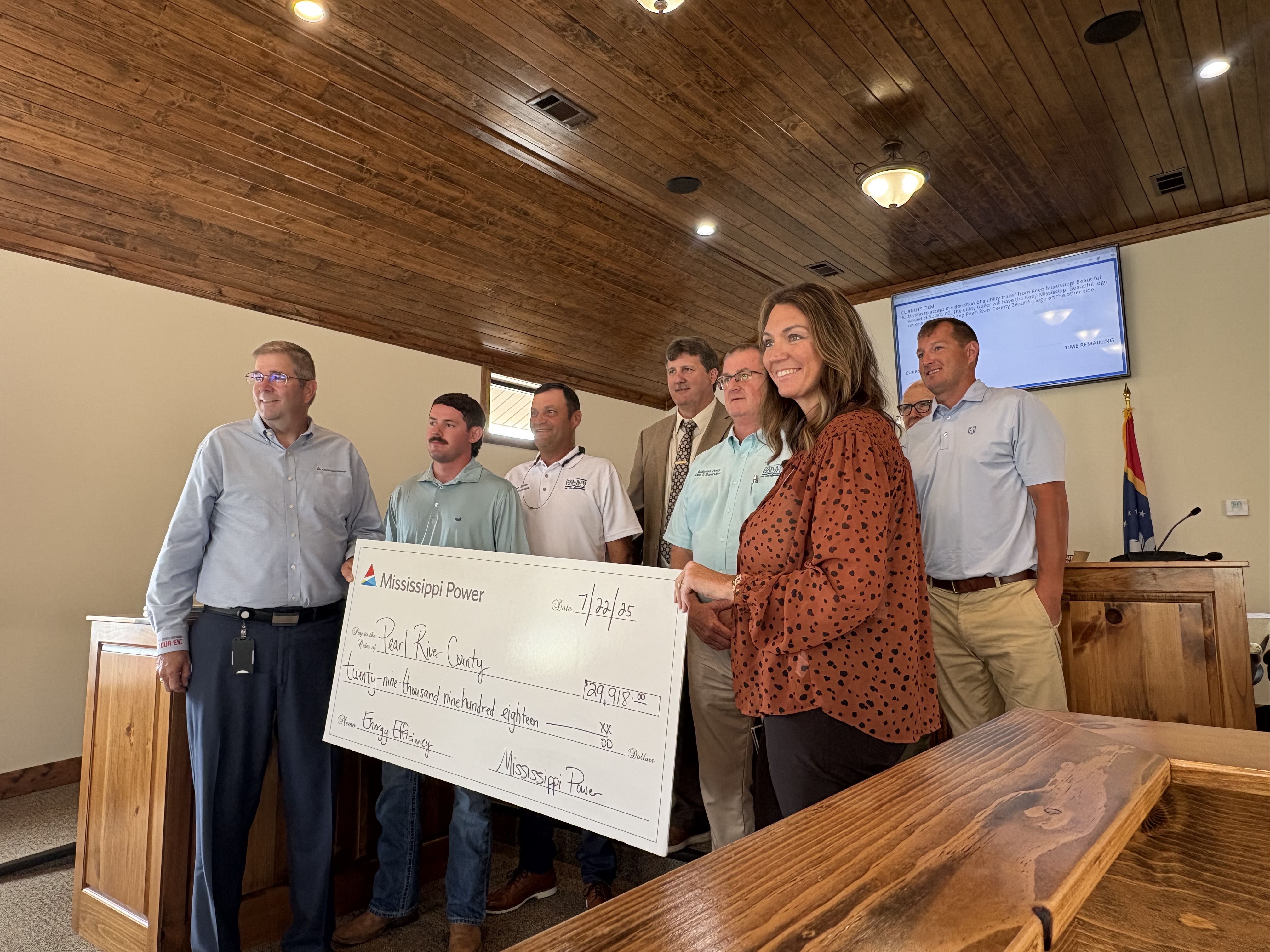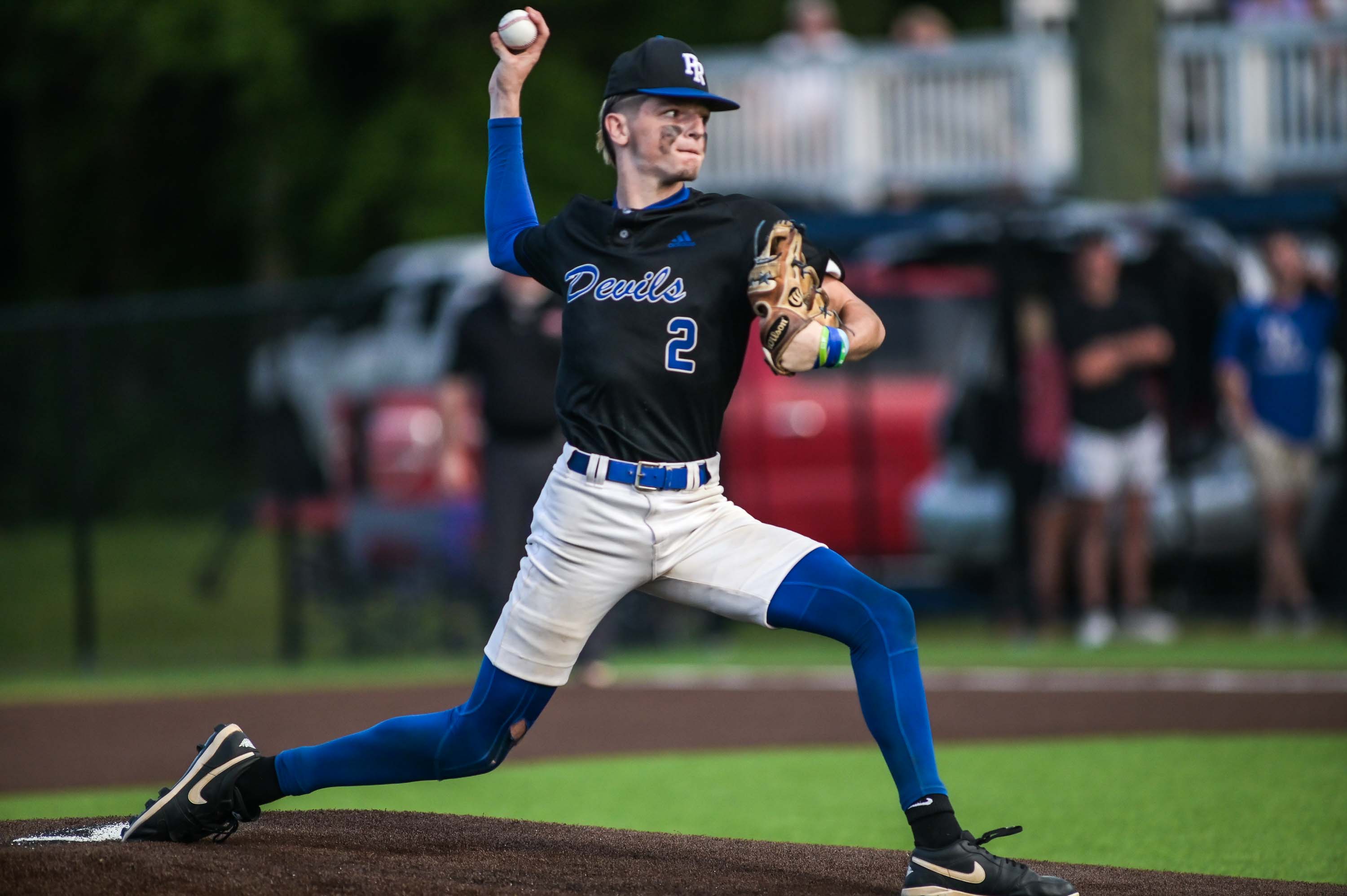Senior citizens receive fall risk assessment screenings
Published 7:00 am Wednesday, June 15, 2016

Toby Cohantz of the Mobile Fall Assessment Lab prepares Jo Lods to walk across an eight-foot pressure mat that will create a 3-D video of her movements.
Photo by Julia Arenstam
Forrest General Hospital Home Care & Hospice partnered with the Electronic Caregiver Company to perform fall risk assessment tests for senior members of the community Tuesday.
First Baptist Church hosted the event where 18 local seniors registered to be assessed for their risk of falling at home. Participants in the tests were given a written report of their results to give to their doctors.
“By giving their doctors these reports, they can come up with treatment plans for the future,” said Pam Breazeale, an in-home health and safety specialist with Forrest General Hospital.
Trending
First Baptist Church was especially motivated to host the event after one of their members recently fell in the parking lot and later passed due to her injuries, said Derek Turnage, the Business Development Coordinator for Forrest General Hospital. Forrest General partnered with ECC to hold the event.
Breazeale said the program is a $13.5 million, 15-year research and development team funded through New Mexico State University.
The first participant of the event was Jo Lods, a former nurse at Highland Community Hospital who suffered a brain aneurism and subsequent stroke in March.
“I was fine, not a headache, not a pain, nothing,” said Lods about the day of her accident. She said that after her husband, George Lods, had come home from work, he had gone into their back apartment for 22 minutes. It was during that time that she fell face down into the fireplace, barely able to breathe.
“They told him I was going to die because I had a brain aneurism,” said Lods.
After four months in the hospital and two weeks in a rehab center, she was able to come home. Since the accident, she has required an in-home caretaker.
Trending
Toby Cohantz, the director of the Mobile Fall Assessment Lab with ECC, said their main goal is to reach senior citizens who are living independently or with the help of a caretaker.
ECC has been traveling for four years across 13 states to provide these screenings and has collected over 1,600 records. They have the largest database in the nation consisting of a wide range of geographic, economic, and education demographics.
One of the biggest problems seniors face is falling without an emergency response system in place.
“If they fall in the tub or the shower, they’re not getting out,” said Cohanz.
He said that on average, people who fall are not found for 18 hours. One-third of seniors 65 years or older will have a significant fall, with 50 percent of those falling again within six months. After a person reaches 80 years, the odds increase to one-half.
According to Cohantz, only one to two percent of people have a personal emergency system in their home.
The fall risk assessment test consists of an eight-foot-long pressure mat with 11,000 micro-sensors to detect how a person walks, where they are putting the most pressure, and determines their overall gait. As they walk across the mat, 10 3-D cameras record the movement of small ping-pong ball sized markers attached to the test subject to recreate a video of the skeleton walking. They also use a Microsoft Kinect system and two iPhones placed on the patients hips to record the most precise data.
“We are committed to helping all problems and keeping seniors independent for as long as possible,” said Cohantz.







